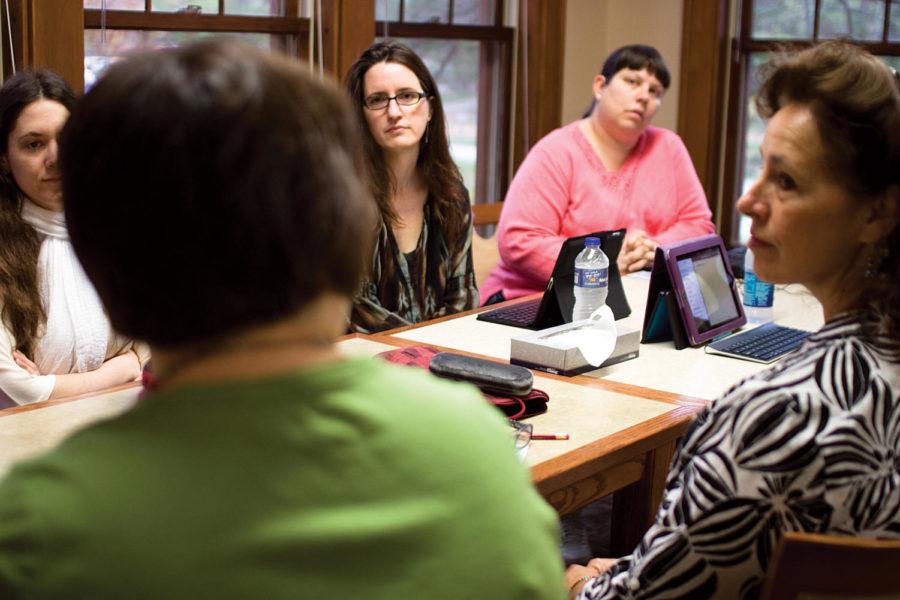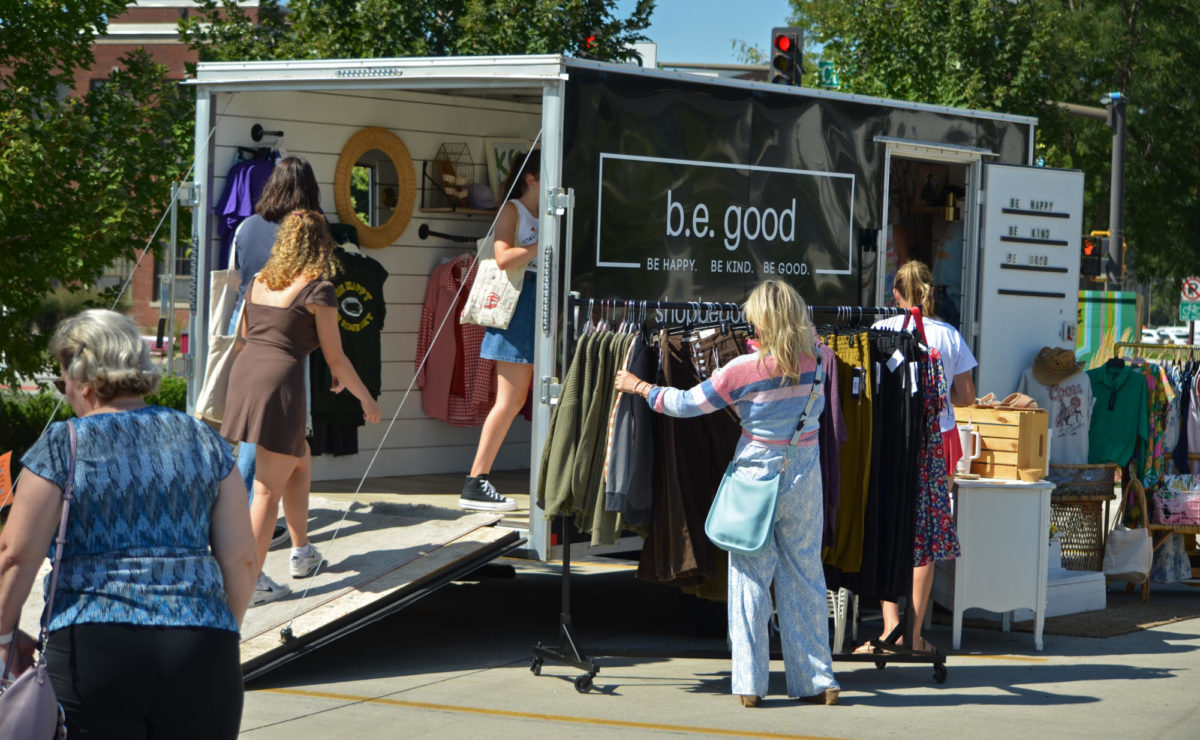External review of Sloss House
October 24, 2012
According to Iowa State’s policy, academic departments and programs must be reviewed every seven years. Seven years has come again for the Margaret Sloss Women’s Center to be reviewed once more.
From Sunday, Oct. 21, to Tuesday, Oct. 23, experts brought in from other institutions around the region will be conducting an external review on women’s center. This year there were three reviewers: Anna LoMascolo, co-director of the Virginia Tech Women’s Center; Anitra Cottledge, assistant director of the Women’s Center at the University of Minnesota; and Colleen Patterson Riggle, assistant dean of students and director of the Georgia Institute of Technology’s Women’s Resource Center.
These three experts were chosen by Dawn Bratsch-Prince, associate provost at Iowa State, and Pamela Anthony, dean of students, both of whom oversee the Margaret Sloss Women’s Center. The three reviewers were chosen from a list of potential reviewers based on their experience in women’s centers, women’s issues and a background in a similar-ran institution to that of Iowa State.
After meetings with various ISU faculty, staff and students with diverse relationships with the Sloss House (from people who directly work with the house to those who don’t even know it exists), reviewers are expected to come up with a “formal report,” giving their feedback on the vision and scope of the women’s center — an assessment of the programs strengths, weaknesses and recommendations for future growth.
Bratsch-Prince said they’ve asked the reviewers to give feedback on the “vision and scope” of the women’s center: “We’d like feedback on our audience — are we targeting the right audience? Is our effort and programming reaching the right audience?”
She said the review provides experts the opportunity to bring new ideas and share their insights on how their women’s centers are structured.
“[They’re] able to give objective feedback on what we’re doing right, and where we might need to switch gears,” she said.
Som Mongtin, assistant coordinator of Margaret Sloss Women’s Center, said the reviewers assessed the women’s center’s mission statement and goals to see if that’s what Iowa State needs from a women’s center. The reviewers focus on topics such as collaboration with other departments, advocacy and promotion of the center, providing student support and leadership and the center’s staffing.
One of the more important questions for the future, Mongtin said: “Is [women’s center] keeping up with demands, especially with enrollment increasing?”
In addition, Mongtin said, the women’s center serves all of campus, not just women. This brings into view the question of promotion: “Are we promoting our center well? When people think women’s center, what do they think of? Do men know they can come too? Do they know of programs that we do? And if they don’t, how can we let students, faculty and staff know that we are here for them? … We’re a resource here for [students and staff].”
Jenifer Roberts, graduate assistant at the women’s center, said she wonders if because the program is called “Margaret Sloss Women’s Center” that people think it’s only for women and therefore the only work done there is for women.
“In reality, we’re open for all students and staff on campus, and the entire Iowa State community,” Roberts said. “We serve everyone. … The work we do and our mission statement applies to everyone as well, not just women’s issues or a specific group of students.”
Mongtin said everyone can benefit from a women’s center.
“[We provide] programs, good leadership and learning experiences and education on gender equity and healthy relationships,” Mongtin said. “We’re here to help you, so let us know what you need from us and what you’d like from a women’s center.”
Chris Fowler, women’s center coordinator, said her vision for the Sloss House is in providing services to faculty, staff and students.
“We’re committed to our mission,” Fowler said. “That we’re on a forefront of issues regarding equity of women on Iowa State’s campus, that we’re a resource for women and people of all genders.
She said she thinks the reviewers will find those who know about the women’s center and use their resources are very positive, and that people who work at women’s center are motivated and passionate about their work. They may also find there are pockets of the university that don’t know about the women’s center.
“The university has grown so much that the Sloss House has a real role to play in serving the needs of female students,” Bratsch-Prince said. “I’d like to see the center reach out and recruit and retain women in the science, technology, engineering and mathematics fields, and help us support and retain female students of color and international students. All of these are growing populations — it’s really logical that the center could be a support mechanism for [these] underrepresented groups.”
Bratsch-Prince said she really believes there’s room for the house to grow and expand.

















